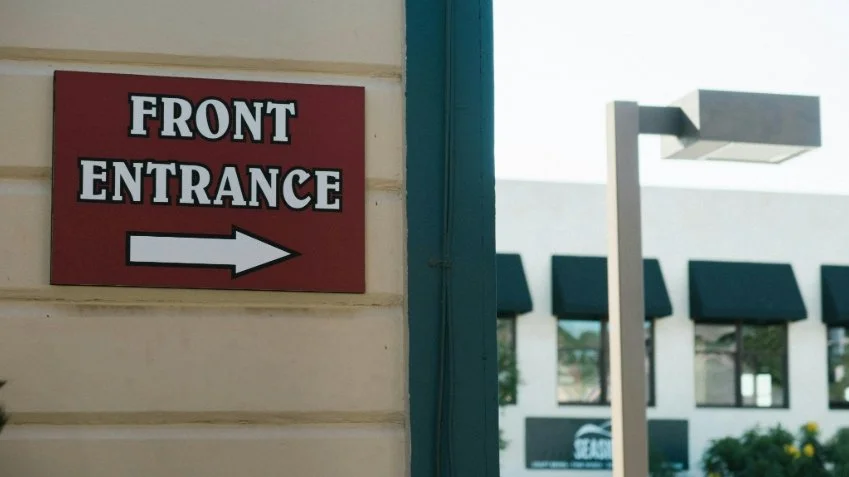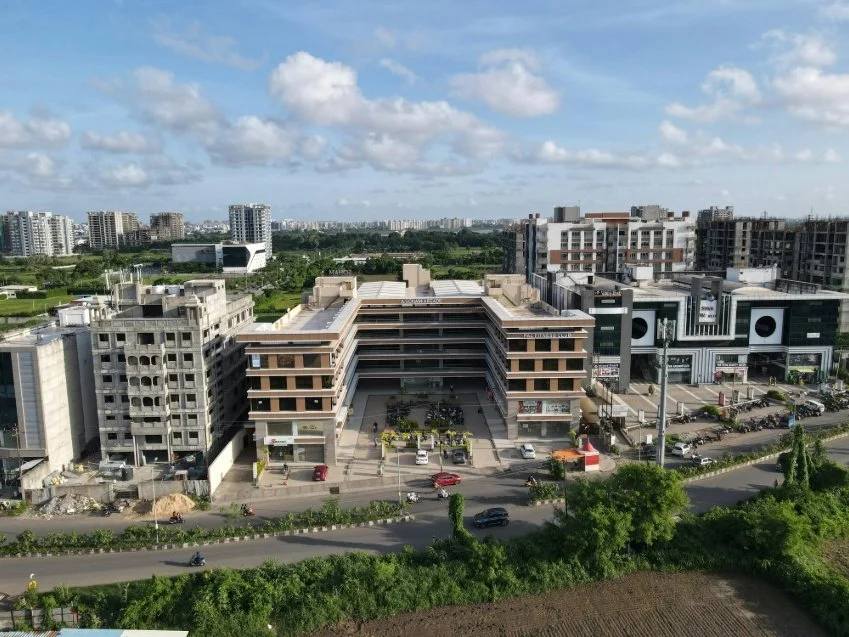Commercial Properties in Pennsylvania: A Smart Investment?
Investing in commercial real estate can be a lucrative opportunity, but choosing the right location is key. Pennsylvania, with its diverse economy, prime location, and growing business hubs, has become an attractive market for commercial property investors. From bustling urban centers like Philadelphia and Pittsburgh to emerging markets in Allentown and Harrisburg, the state offers a variety of investment opportunities.
But is investing in commercial properties in Pennsylvania a smart move?
This article explores the strengths, trends, and potential challenges of the commercial real estate PA market to help investors make an informed decision.
Why Invest in Commercial Real Estate in PA?
Pennsylvania offers a strong foundation for commercial real estate investments, thanks to its diverse economy, strategic location, and growing business hubs. Here are key reasons why investors find commercial properties in Pennsylvania a smart choice:
1. Diverse Economy
Pennsylvania has a well-balanced economy, driven by industries such as healthcare, manufacturing, logistics, and technology. Cities like Pittsburgh have evolved into tech and research hubs, while Philadelphia remains a stronghold for finance and healthcare. This economic diversity reduces investment risks and ensures steady demand for commercial properties.
2. Prime Location and Transportation Network
Pennsylvania’s central location makes it a key player in the Northeast corridor. With proximity to major markets like New York, Washington, D.C., and the Midwest, businesses benefit from easy access to customers and suppliers. The state also boasts a well-developed transportation network, including major highways (I-76, I-95), rail lines, and international airports, making it ideal for industrial and logistics properties.
3. Thriving Business Hubs
Major cities in Pennsylvania offer strong commercial real estate opportunities:
Philadelphia: A financial, healthcare, and education powerhouse with a growing demand for office, retail, and multifamily properties.
Pittsburgh: A leading center for tech startups and innovation, attracting investors in office and mixed-use developments.
Harrisburg: The state capital, with a stable commercial market driven by government and healthcare industries.
Allentown & Lehigh Valley: A rising industrial and logistics hub, benefiting from e-commerce and manufacturing growth.
4. Strong Industrial and Warehouse Demand
The rise of e-commerce has fueled demand for industrial properties, and Pennsylvania is at the center of this boom. The state is home to major distribution centers for companies like Amazon, Walmart, and UPS. Investors looking for commercial real estate in PA can capitalize on this trend by exploring warehouses and logistics properties.
5. Affordable Property Prices Compared to Neighboring States
Compared to New York and New Jersey, Pennsylvania offers lower commercial property prices and operating costs. This makes it an attractive option for businesses and investors looking for high returns without the steep entry costs found in nearby metropolitan areas.
With its economic strength, strategic location, and expanding business centers, Pennsylvania presents a compelling case for commercial real estate investments. However, investors should also consider market trends and potential challenges before making a decision.
Types of Commercial Properties in Pennsylvania
Pennsylvania’s commercial real estate market offers a variety of investment opportunities, ranging from office spaces in urban centers to industrial warehouses in logistics hubs. Here are the key types of commercial properties in Pennsylvania that investors should consider:
1. Office Spaces
Office buildings are concentrated in major business districts like Philadelphia’s Center City and Pittsburgh’s Downtown.
The demand for office space is shifting, with hybrid work models influencing leasing trends.
Suburban office parks in areas like King of Prussia and Harrisburg offer more affordable alternatives to city-center properties.
2. Retail Properties
Shopping centers, strip malls, and standalone stores thrive in high-traffic areas.
Major retail corridors include Walnut Street in Philadelphia and Ross Park Mall in Pittsburgh.
The rise of experiential retail (restaurants, fitness centers, entertainment spaces) is reshaping the retail sector.
3. Industrial and Warehouse Properties
Pennsylvania is a logistics powerhouse, with major distribution hubs in Lehigh Valley, Scranton, and the I-81 corridor.
The state's strategic location makes it ideal for e-commerce fulfillment centers and manufacturing plants.
Demand for industrial spaces continues to grow due to Pennsylvania’s proximity to New York, New Jersey, and Ohio markets.
4. Multifamily and Mixed-Use Properties
Multifamily developments, including apartment complexes, are in high demand in Philadelphia, Pittsburgh, and Allentown.
Mixed-use properties, which combine residential, office, and retail spaces, are popular in urban centers like Lancaster and Bethlehem.
5. Hospitality and Tourism Properties
Hotels, resorts, and short-term rental properties thrive in tourism-heavy areas like the Pocono Mountains and Hershey.
Business-travel-driven hotels are in demand in Philadelphia and Pittsburgh, especially near convention centers and corporate hubs.
Pennsylvania’s diverse commercial property market offers something for every investor, whether they’re looking for high-traffic retail locations, industrial warehouses, or modern office spaces. The key is to choose the right sector based on market trends and location demand.
Key Markets for Commercial Real Estate in PA
Pennsylvania’s commercial real estate market varies across different cities and regions, each offering unique investment opportunities. Here’s a look at the key markets for commercial properties in Pennsylvania:
Philadelphia: The Economic Powerhouse
As the largest city in Pennsylvania, Philadelphia is a prime location for office buildings, retail centers, and multifamily developments.
Strong industries: Healthcare, finance, education, and tourism.
Key commercial districts: Center City (office and retail), University City (education and research-driven commercial real estate), and Navy Yard (industrial and office spaces).
Pittsburgh: A Growing Tech and Business Hub
Once an industrial city, Pittsburgh has transformed into a hub for technology, robotics, and healthcare.
Strong demand for office spaces in areas like the Strip District and South Side.
Industrial and warehouse growth is supported by logistics expansion and manufacturing.
Harrisburg: Government and Logistics Strength
As the state capital, Harrisburg has a stable office market driven by government and corporate tenants.
The region is also growing as a logistics and distribution center, benefiting from its central location and access to major highways.
Allentown & Lehigh Valley: The Industrial Boom
One of the fastest-growing commercial real estate markets in PA.
Strong demand for industrial properties and warehouses, driven by e-commerce and proximity to major distribution networks.
Retail and multifamily development is expanding as the region attracts new residents and businesses.
Scranton & Wilkes-Barre: Emerging Markets
Affordable commercial property prices compared to major PA cities.
Industrial and logistics spaces are increasing, especially along the I-81 corridor.
Retail and hospitality growth as the region revitalizes its downtown areas.
Each of these markets presents different opportunities depending on the type of commercial property an investor is looking for. From urban office buildings to industrial warehouses in logistics hotspots, commercial real estate in PA continues to evolve, offering lucrative options across various industries.
Market Trends and Investment Opportunities in Pennsylvania
Understanding current market trends is crucial for making informed decisions about commercial real estate in PA. Here are some key trends and investment opportunities shaping Pennsylvania’s commercial property market:
1. Rise of Industrial and Logistics Real Estate
The growth of e-commerce has increased demand for warehouses and fulfillment centers.
Areas like Lehigh Valley, Scranton, and Harrisburg are becoming key industrial hubs.
Investors are looking at last-mile distribution centers to meet consumer demand for fast delivery.
2. The Shift in Office Space Demand
The hybrid work model has reduced demand for traditional office spaces in some areas.
Flexible workspaces and coworking offices are gaining popularity, especially in Philadelphia and Pittsburgh.
Suburban office markets in areas like King of Prussia and Allentown are seeing more interest as companies move away from high-cost urban offices.
3. Retail Market Adapting to Consumer Preferences
Experiential retail (restaurants, entertainment, fitness centers) is replacing traditional retail spaces.
Grocery-anchored shopping centers and mixed-use developments are gaining traction.
Prime retail locations in Philadelphia’s Walnut Street and Pittsburgh’s Market Square continue to perform well.
4. Multifamily Properties Remain Strong
High rental demand in major PA cities is driving investments in apartment complexes.
Mixed-use developments combining retail, office, and residential units are popular in areas like Lancaster and Bethlehem.
Investors are focusing on affordable and workforce housing due to increasing home prices.
5. Green and Sustainable Commercial Properties
Pennsylvania is seeing a rise in LEED-certified and energy-efficient buildings.
Office buildings with green technology and sustainability features are attracting more tenants.
Solar-powered industrial properties are emerging as companies focus on reducing their carbon footprint.
These trends indicate that commercial properties in Pennsylvania offer diverse investment opportunities, from high-demand industrial real estate to evolving office and retail markets. Investors who align with these trends can position themselves for long-term success.
Challenges and Risks of Investing in Commercial Properties in PA
While commercial real estate in PA presents strong investment opportunities, it’s important to consider the potential challenges and risks that come with it. Here are some key factors investors should be aware of:
1. Economic Fluctuations
Pennsylvania’s economy is diverse, but certain industries are more vulnerable to economic downturns (e.g., retail and office spaces).
Investors should focus on stable industries such as healthcare, logistics, and multifamily housing to mitigate risk.
2. Changing Work Trends Affecting Office Spaces
The hybrid and remote work trend has led to declining demand for traditional office spaces, particularly in downtown areas.
Investors in office properties should consider flexible workspaces or mixed-use conversions to adapt to changing demand.
3. High Property Taxes in Certain Areas
Some counties, especially in Philadelphia and Allegheny (Pittsburgh) counties, have higher-than-average property taxes, which can impact investment returns.
Investors should research tax incentives and consider lower-tax regions such as Lancaster or Lehigh Valley for better profitability.
4. Regulatory and Zoning Challenges
Pennsylvania’s zoning laws vary significantly by city and township, which can impact property development plans.
Investors should work with local zoning experts and attorneys to navigate land-use restrictions and permitting processes.
5. Retail Sector Uncertainty
Traditional brick-and-mortar retail faces challenges due to increasing e-commerce competition.
Investors should focus on high-traffic locations and adapt properties for experiential or service-based tenants (gyms, restaurants, medical offices, etc.).
6. Infrastructure and Transportation Considerations
While Pennsylvania has a strong transportation network, aging infrastructure in some areas can affect commercial properties.
Investors should prioritize locations near well-maintained highways, airports, and logistics hubs for long-term viability.
By understanding these challenges, investors can make more strategic decisions and minimize risks when exploring commercial properties in Pennsylvania.
How to Invest in Commercial Real Estate in Pennsylvania
Investing in commercial properties in Pennsylvania requires careful planning, market research, and strategic decision-making. Here’s a step-by-step guide to help you get started:
Define Your Investment Goals
Are you looking for long-term income through rental properties, or do you prefer short-term gains from flipping commercial properties?
Identify your risk tolerance and decide whether you want to invest in office spaces, retail centers, industrial properties, or multifamily buildings.
Research the Market and Location
Analyze key commercial markets in PA, such as Philadelphia, Pittsburgh, Lehigh Valley, and Harrisburg.
Consider economic growth, job market trends, and demand for commercial spaces in your chosen area.
Evaluate property values, vacancy rates, and potential return on investment (ROI).
Secure Financing
Explore different funding options, including:
Traditional bank loans
Commercial real estate investment loans
Private lenders or real estate investment groups
Real estate crowdfunding for smaller investors
Ensure you have a strong credit profile and financial reserves for unexpected expenses.
Work with Real Estate Professionals
Partner with a local commercial real estate agent who understands Pennsylvania’s market trends.
Consult a real estate attorney to handle contracts, zoning laws, and legal compliance.
Hire a property manager if you plan to lease out your property and need assistance with tenant management.
Conduct Due Diligence
Before purchasing, perform a thorough property inspection to check for structural or environmental issues.
Review zoning laws and land-use regulations to ensure the property aligns with your investment plans.
Analyze lease agreements, tenant history, and operating costs if buying an existing commercial property.
Close the Deal and Manage the Property
Finalize the purchase by securing financing and signing contracts.
If leasing out the property, develop a strong marketing strategy to attract tenants.
Implement a property maintenance plan to retain long-term tenants and maintain property value.
By following these steps, investors can successfully navigate the process of acquiring and managing commercial real estate in PA, ensuring profitable and sustainable investments.
Conclusion: Is Commercial Real Estate in Pennsylvania a Smart Investment?
Investing in commercial properties in Pennsylvania offers significant opportunities, but success depends on market knowledge, strategic planning, and risk management. The state’s diverse economy, strong logistics sector, and demand for multifamily and industrial spaces make it an attractive destination for investors.
However, challenges like shifting office space trends, zoning regulations, and varying property taxes require careful consideration. By focusing on high-demand sectors like industrial real estate, mixed-use developments, and experiential retail, investors can position themselves for long-term success.
Whether you’re a seasoned investor or new to commercial real estate in PA, thorough research, financial planning, and professional guidance are key to making informed and profitable decisions. With the right approach, Pennsylvania can be a smart and rewarding investment market for commercial property buyers.
Your Next Investment Deal Starts Here!
Join our exclusive investor network and gain access to off-market deals, key resources, and exclusive discounts on top real estate tools. Whether you’re looking for your first commercial property or expanding your portfolio, we provide the insights and opportunities you need to succeed.
Explore the Best Investment Properties For Sale in PA
Prime Investments Real Estate Group offers the most lucrative commercial properties in Pennsylvania, ensuring strong returns in any market environment. With years of experience and a deep understanding of the local real estate landscape, our team is committed to helping investors like you maximize their investments.
Our seasoned professionals actively guide and assist investors through every aspect of the commercial real estate market in PA, providing expert strategies and hands-on support.
📞 Ready to take the next step? Contact us today and start building your real estate portfolio with Prime Investments!







